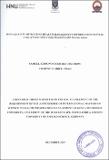| dc.description.abstract | Effective and efficient management of today's health system depends on well-functioning Health Management Information System (HMIS) in design and implementation. Good quality data are the foundation of health systems in generating information for policy-making, planning, monitoring of health outcomes and evidence based decision making. Taking the cognizance of deficiencies in data quality, where vital health decision often depend on political speculation, donor demand and studies which are insensitive to changes over time. The aim of the study was to contribute to improvement of data quality of Routine Health Management Information System to facilitate efficient and effective decision making in Uasin Gishu County Hospital and possibly in similar settings. The objectives were; to assess the current state of data quality of routine health management information system; to determine socio-demographic characteristics that affect data quality of routine health management information system; to identify process factors influencing data quality of routine health management information; to find out technological factors affecting data quality of routine health management information system and to establish organizational factors influencing data quality of routine health management information system in Uasin Gishu County Hospital. This was a cross-sectional study which adopted quantitative and qualitative approaches. The study used purposive sampling to select study site with a target population of 82 respondents. Data extraction form, structured questionnaire and key informant interview guide were used for data collection. Questionnaire results were edited, coded, tabulated and analyzed using SPSS Version 23, StataSE version 13 and Microsoft excel. The results showed availability of data were at 88 (56%). 32623(44%) of the data elemets in all the reports dully filled. The reliability of data using Cronbach's Alpha were at .729. which fall within acceptable value and 48(16%) marginal error. 65(80%) of respondent are permanent and pensionable, 55(68%) staff who collect data are nurses. 81(100%) had gone for leave while 61(75%) found pending work. 38(47%) knew RHMIS through workshops while 78(96%) participate in data collection and 51(63%) had not been trained on HMIS while 37% (30) had been trained in the last 12 months of the year 2014. 69 (85%) had responsibilities while 53 (65%) were able to accomplish the task (x 2 = 26.665, df=1, p=0.000), 32 (40%) affirmed availability of standard operating procedures with 0% availability of quality protocol with an index of 18% institutional documentation. In conclusion the study found that current data quality from routine health management information system had major gaps if used to generate information and recommended the need for advocacy for continuous information use as a culture; data review and verification. The Ministry of Health require to advocate for increased human resource in terms of numbers and skills which has implications on the process factors. There is also need to ensure continuous supply of data collection tools with minimum datasets. . Stakeholders should strengthen capacity building through mainstreaming HMIS into various professional curriculums and strengthening of institutional documentation especially policy, standard operating procedures, guidelines and data quality protocols to enhance data quality. | en_US |

